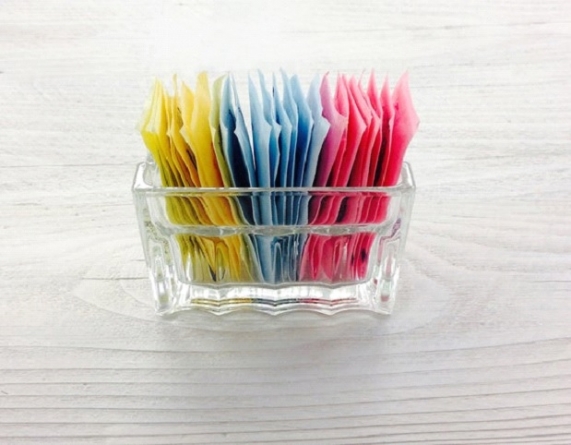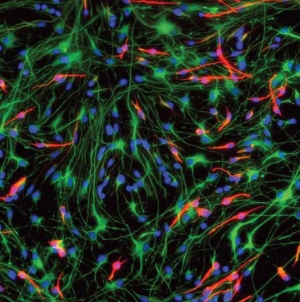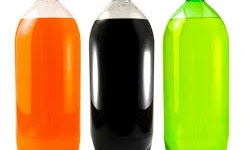-
LONDON: Indian-Origin Teen In UK Gets “Life-Changing” Cancer Treatment - 7 hours ago
-
SILICON VALLEY: All About Pavan Davuluri, New Head Of Microsoft Windows - 7 hours ago
-
LONDON: UK’s India Gate To Commemorate Role Of Indian Soldiers From World Wars - 1 day ago
-
HARARE: Shri Bramha Kumar appointed as the next Ambassador of India to the Republic of Zimbabwe - 2 days ago
-
LONDON: Indian-Origin Principal Wins UK Legal Challenge Over School Prayer Ban - 2 days ago
-
TORONTO: Indian-Origin Doctor Needs ₹ 2 Crore For Legal Fees. Elon Musk Responds - April 22, 2024
-
KINSHASA: India-Democratic Republic of Congo Foreign Office Consultations - April 21, 2024
-
LONDON: UK Court Allows Sale Of Nirav Modi’s Luxury London Apartment - April 21, 2024
-
TEHRAN: Travel advisory for Iran and Israel - April 20, 2024
-
LUXEMBOURG: Shri Saurabh Kumar concurrently accredited as the next Ambassador of India to the Grand Duchy of Luxembourg - April 20, 2024
BERLIN : Some Sugar Substitutes Affect Blood Glucose and Gut Bacteria
BERLIN : In a new study, participants who consumed sugar substitutes showed an altered microbiome and spikes in blood glucose. As Diet Coke and its sweetener aspartame wrap up 40 years or so on American store shelves, the decades-long controversy around the safety of sugar substitutes continues. Ever since diet drinks hit the stores in the 1950s, rumors have swirled that such sweeteners—which today also include saccharin, sucralose and stevia—do more than satisfy a sweet tooth without the calories of sugar. But whether that “more” exists hasn’t been easy to establish.
In a new study of four sugar substitutes, researchers found that these nonnutritive sweeteners don’t just travel through the body unnoticed. The study results, published on August 19 in Cell, link two of the sweeteners—saccharin and sucralose—to spikes in glucose levels and suggest all four are tied to a shift in gut microbe profiles. Whether these findings translate into trouble, benefit or neither remains to be seen, and aficionados of diet drinks don’t need to trash the diet soda can just yet.
“It’s cool science and was very well designed, thought out and executed,” says Dylan Mackay, an assistant professor of nutrition and chronic disease at the University of Manitoba, who was not involved in the study. “I’ve always wanted to do these more at-home trials, and they were able to pull it off in a really interesting way.”
In 2014 researchers found a link between microbiome changes and blood glucose responses in mice after intake of sugar substitutes. To see if those same links applied to humans in the new study, the scientists selected participants from a potential pool of more than 1,375 people, ruling out anyone who consumed noncaloric sweeteners in their regular daily life. Some had unknowingly done so by way of protein powders, chewing gum, or low-sugar snacks or desserts.
The researchers split the final 120 participants into six groups of 20. In four of these groups, participants consumed commercial packets of one of the four sweeteners at levels below their federal daily limit. A fifth group consumed only the filler used in these packets, which is commonly added to bulk out the tiny amount of sugar substitute they contain. The sixth group had no intervention.
During the two weeks that participants consumed their assigned sweetener or the filler, they also took oral glucose tolerance tests, which are used to measure the body’s response to sugar and can be employed to diagnose some forms of diabetes. For these tests, they drank a glucose solution every morning after overnight fasting and used home-based continuous glucose monitors to track their blood glucose levels. The researchers also collected oral and stool samples from the participants to analyze the species of microbes they hosted. Study investigators additionally measured levels of some products of metabolism in the blood.
The participants who consumed saccharin or sucralose had a steeper blood glucose response than any of the other groups. When participants consumed any of the four sugar substitutes, their gut bacteria profile changed during the two weeks of intake. Along with these changes, levels of the metabolic products changed, too. For example, in participants who took saccharin, the production of a type of amino acid increased, echoing patterns seen in people with diabetes.
To confirm a link between microbial profiles and blood glucose responses, the investigators orally administered microbiomes—taken from the human participants with the highest and lowest blood glucose spikes following sweetener consumption—to germ-free mice. Mice exposed to microbiomes from human “top responders” showed changes in their blood glucose that “very significantly mirrored those of the donor individuals,” says study author Eran Elinav, principal investigator of the Host-Microbiome Interaction Research Group at the Weizmann Institute of Science in Rehovot, Israel, and director of the Microbiome and Cancer Division at the German National Cancer Center in Heidelberg.
This part of the work “is a really cool portion of the paper,” Mackay says. The findings in mice “are interesting mechanistic evidence that maybe [these sweeteners] are having an effect.”
The effects of the sweeteners on blood glucose are likely highly personalized, Elinav says. But the results suggest these compounds don’t just pass through the body, as some originally thought.
Part of the personalized response will relate to the health of the person involved, Mackay says. The findings “can’t extend to people who may be overweight or have obesity or impaired glucose tolerance or type 1 or type 2 diabetes,” he says.
The findings don’t settle the question of whether any effects will be meaningful for human health—a subject to tackle in other studies, Elinav says. The researchers also don’t know if these effects will persist beyond the two weeks of exposure in the current study, Mackay says.
The study involved healthy people without overweight or obesity and who represent only a subset of the population that consumes food and drink with these sugar substitutes, Mackay notes. “From a user perspective, as someone with type 1 diabetes, almost everything I use has aspartame,” he says. “I’m not going to stop that and switch back to regular glucose or sugar-containing products because of these results.”























